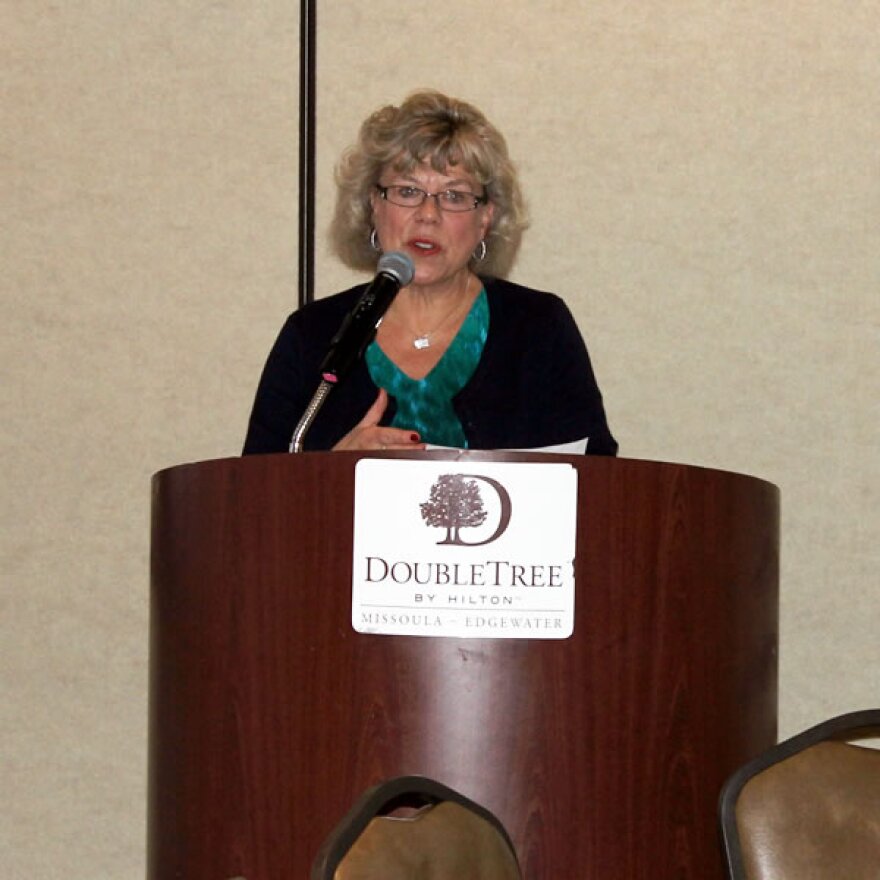State Representative Amanda Curtis of Butte is the first Democrat to indicate interest in replacing Congressman Ryan Zinke if he is confirmed as secretary of the Interior next year. Curtis says she’s not yet decided whether she’ll seek her party’s nomination, but says if Zinke is appointed, it would a great opportunity for Democrats to take back the seat and that she has been encouraged to run by her supporters and family:
"It’s an opportunity to go to Washington and to be the voice for my neighbors," Curtis says.
Curtis ran unsuccessfully against Senator Steve Daines for a U.S. Senate seat in 2014.
"I am perhaps the only Montanan who has lived through this challenge before, but the starting point is a little different this time," says Curtis.
At least a half-dozen Republicans are also floating trial balloons to be the GOP’s nominee. They include state legislators Daniel Zolnikov of Billings, Scott Sales of Bozeman, and Ed Buttrey of Great Falls, along with Corvallis resident Gary Carlson, who publishes a conservative newsletter online.
District Judge Russell Fagg of Billings says he’s also considering a run for the seat. He’s been a judge for 22 years and has served in the Montana Legislature. His main concern is the national budget deficit:
"All these important issues like national security, immigration, health care, education, the environment, they are all going to require money, and if we implode from within because of fiscal issues then we’re going to have all kinds of consequences," Fagg says.
Bozeman resident Eugene Graf IV has also thrown his hat into the ring. Graf owns a construction company and, since 2011, has been the state representative to the National Association of Home Builders:
"Each time I build a house I see 115 to 130 different people. Many of them are very small business owners. And I think I have a good insight into how we can possibly help those small business owners continue to create job s instead of letting these regulations keep killing jobs," Graf says.
Because this is a special election, there won’t be a primary process. Instead, people who want to become their party’s nominee have to follow their state party’s rules to do so. Those rules for Montana Democrats and Republicans both call for the parties’ central committees to hold conventions in which party leaders vote to select nominees.
Independent candidates can petition themselves onto the ballot, Montana Secretary of State Linda McCulloch says:

"They have to gather signatures, and those signatures are five percent of the total votes cast for the successful candidate for the same office in the last election. The last election was 2016, so it would 14,268 verified signatures, and that’s five percent."
There are no geographic requirements for where the signatures come from, as long as they’re registered Montana voters. The deadline for turning them in is:
"Seventy-five days before the election, and they can start gathering those signatures now," McCulloch says.
The election date has not yet been set. State law says it’s up to the governor to do that, and the date must be between 85 and 100 days after Montana’s congressman officially resigns his seat. That would presumably happen after a U.S. Senate confirmation hearing on Congressman Zinke’s appointment. No date has been set for that hearing, which could occur anytime after Inauguration Day on January 20. So far, McCulloch says no one has picked up any official petitions from her office that must be used to gather the signatures, but some people have indicated interest in them.
"Yeah, we’ve had a few. We’ve had a fair amount," McCulloch says.
Once petitions are turned in, it will be up to individual county elections administrators to verify the signatures. Once that’s done, the secretary of state’s office will then place qualifying candidates’ names on the ballot. Voting will happen just like a regular election, with Montanans going to local polling places to cast their ballots, except for those who vote absentee.


